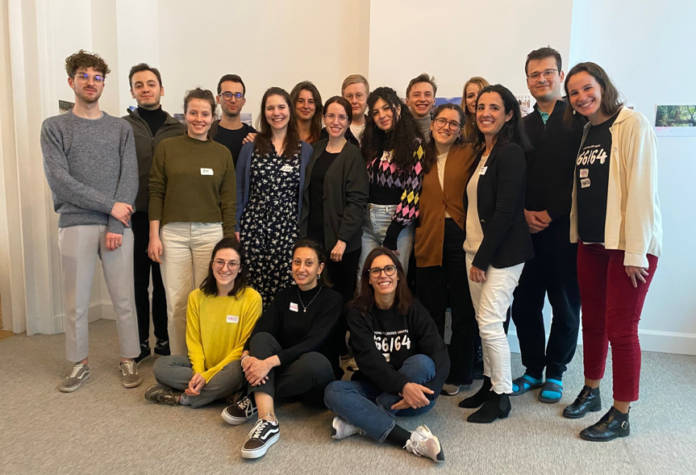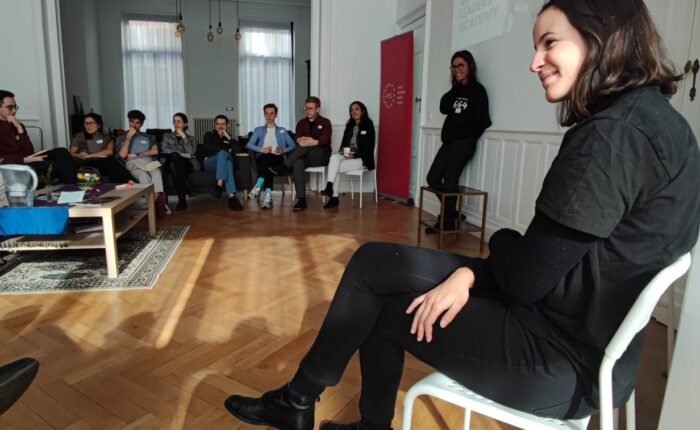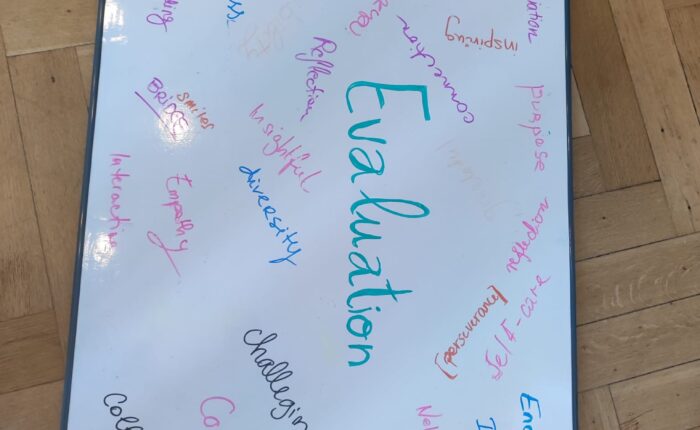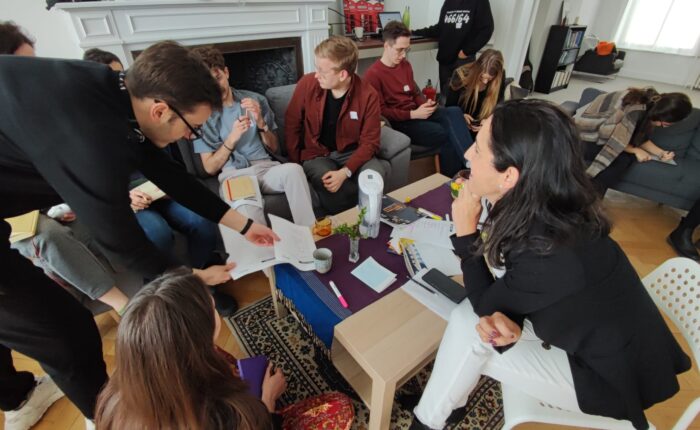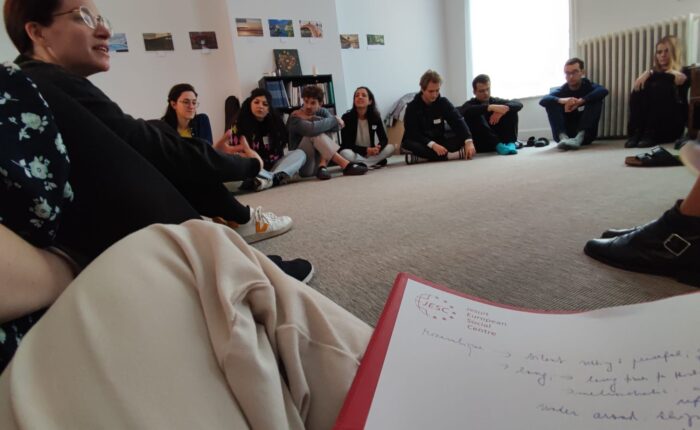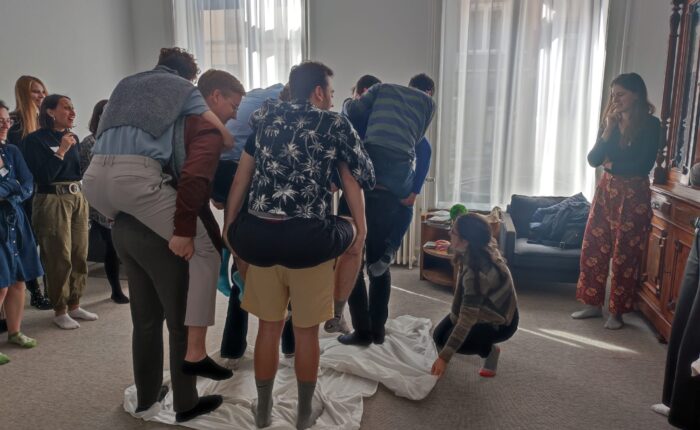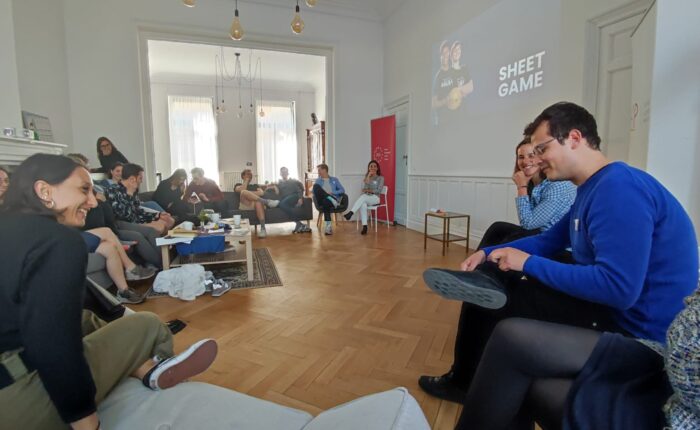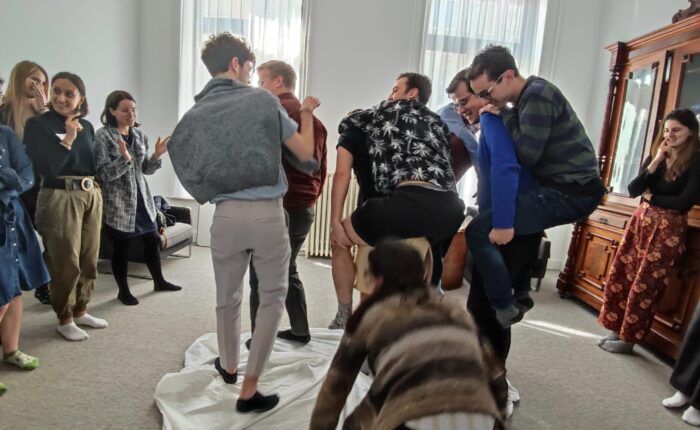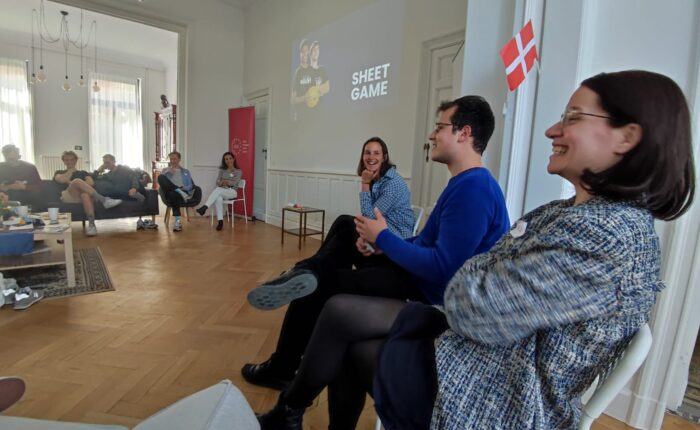“I am because you are.” This is the meaning of “Ubuntu,” a word of Zulu origin which literally states that one can only be a person through other people. As Archbishop Desmund Tutu stated, “you cannot be human on your own. You are human through relationship.” An idea which, as we ELP fellows learned and experienced in person, is composed of three fundamental elements: ethics of care, the construction of bridges, and the servant leadership.
These are elements which we incorporated into our learning and life experiences after recently attending a two-day workshop lead by Marta and Tania, team members of the Ubuntu Leaders Academy (ULA). With headquarters in Portugal, ULA is a non-formal educational project aimed at fostering an approach that links the development of the human potential with the service to others. Although the sources of inspiration are multiple, we could not help but notice a distinctive feature in our facilitators: they wore a black t-shirt with the digits “466/64” in white. A well-known number of those familiar with the history of the civil disobedience, pacifism, and apartheid: it was given to Nelson Mandela when he was imprisoned on Robben Island in 1964.
Certainly, Mandela was an exemplary leader due to his political compromise and approach to reconciliation and transitional justice when he became president of a highly divided country. The most notable feature of his activism and political mandate was his approach to people and power: he governed by serving others. While being a servant and being a leader are usually seen as opposites, when they come together, there is a paradox. This has to do with the kind of leadership where one serves first and leads afterwards.
Encouraging, experiencing, and applying this kind of leadership is linked to the development of five core pillars: self-knowledge, self-confidence, resilience, empathy, and service. A deeper understanding of these pillars was achieved using different techniques and dynamics such as games, videos, individual and group reflections, empathy maps, etc., which guided us through different moments. We embarked on an inner journey based on collaboration, which encouraged and nurtured our sense of self-empowerment.
Through encounters and relationships, particular attention was given to skills such as teamwork, critical and self-reflexive thinking, communication, and problem-solving. We felt that by actively participating in the activities, a better sense of acceptance and respect arose among us.
The second day of the workshop was focused on building bridges. We participated in several activities that emphasised the physical and metaphorical significance of a bridge. Questions such as “How would I act if I were a bridge?” and “What kind of bridge am I?” were explored by building a bridge in teams with deep cultural gaps. We recognised that, despite our differences, interdependence is one of the key features for any bridge builder. The certainty of the need for others to connect margins that are not always close is an essential characteristic of a servant leader.
We closed the Ubuntu workshop with some final open questions that provide a roadmap for our present and future lives: What is the context of my life/person that requires more empathy now? What skills do we need to develop to accomplish this mission? What bridges do I still need to build? What can we learn from Mandela’s leadership? How can we implement these learnings in our context?
We are aware of the challenges and difficulties that we will encounter on our journey, but we believe that through a combination of empathy, compassion, love, and perseverance, we will build strong and durable bridges. Nelson Mandela’s experience is the quintessential proof of this. The powerful effect of his words is timeless:
“I learned that courage is not the absence of fear, but rather the triumph over it. The brave man is not he who does not feel afraid, but he who conquers that fear.”
By Teresa Pallarés Ramos, ELP Spring 2023 Fellow

